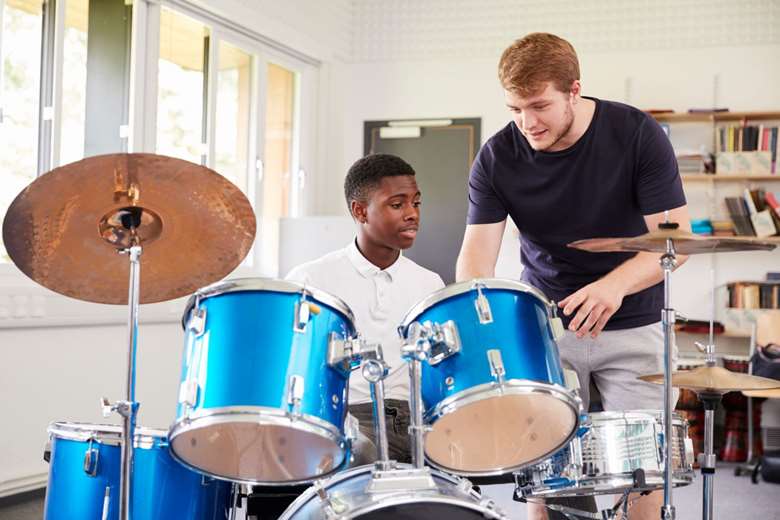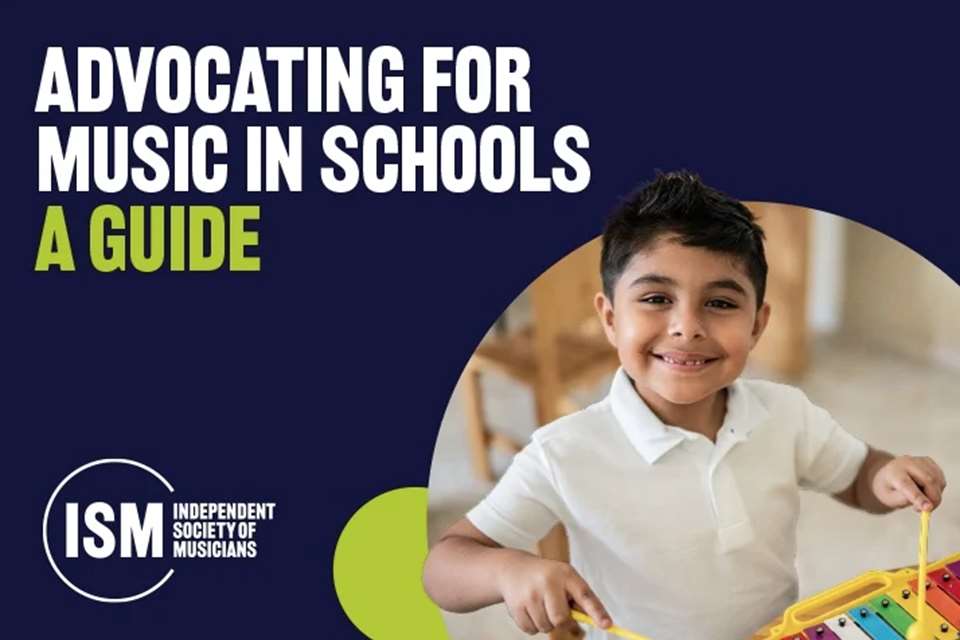ISM column: updated Teachers’ Pack
Thursday, February 1, 2024
The Independent Society of Musicians shares some top tips from its updated Teachers' Pack – a free guide for instrumental and vocal teachers on building a thriving career.

Adobe Stock / Monkey Business
Being a music teacher is not just about imparting knowledge – it's also about growing your own skills and progressing your career.
The ISM Trust’s recently updated Teachers’ Pack is a useful guide for instrumental and vocal teachers, whether you are employed, working freelance in schools or teaching privately. It covers issues all music teachers need to know about, including contracts, fees, safeguarding, employment status, tax, finding work and professional development, as well as looking after your health and wellbeing.
The Teachers’ Pack is a free resource created by the ISM Trust, the sister charity of the Independent Society of Musicians (ISM). The Trust offers high quality professional development to everyone working in music.
Take a look at some top tips from the Teachers’ Pack below.
Setting up as a teacher
Music teaching can be a highly rewarding career path. There are various questions to think through before you get started, including:
- Where will you teach?
- Do you have a suitable space and the necessary equipment?
- Will you teach adults, children or both?
- Will you teach beginners and more advanced students?
- Will you teach groups and individuals?
- Which instrument or instruments will you teach? And will you teach theory?
- Who is responsible for timetabling? You or someone else?
- Will you be offering both in-person and online teaching?
Making these important decisions will help you to focus your teaching practice and to promote it effectively.
Contracts
We strongly advise that you have a written contract for every student you bill directly and with every school where you teach. This ensures your rights and obligations (and those of your students or their parents) are clearly set out and reduces the scope for later dispute. The Teachers’ Pack explains what should go into a contract and how to make use of the ISM’s template contracts for self-employed teachers.
Setting and negotiating fees
The results of the ISM’s annual survey of music teachers’ fees will give you an understanding of the market rates. Our surveys cover both private teaching rates and fees paid to self-employed and employed visiting music teachers. Take into account factors such as your locality, general price inflation and the general economic situation and its impact upon demand for tuition.
Safeguarding
Child protection and safeguarding training is crucial for all teachers, regardless of employment status or teaching environment. For those working in schools, whether employed or self-employed, regular safeguarding training should be provided by the school, with self-employed visiting music teachers compensated for attendance.
Employment status
Understanding employment status is vital for music teachers as it can provide legal protections and rights such as holiday pay or protection from unfair dismissal. There are three categories: employees, workers, and self-employed individuals. If you are in doubt about your employment status, you should seek legal advice, such as from the ISM legal team if you are an ISM member.
Tips for visiting music teachers
Visiting music teachers (VMTs) should carefully assess their contracts to avoid false self-employment and ensure fair treatment. Consider factors like holidays and pensions when setting rates. Be aware of the lack of unfair dismissal protection and seek prompt legal advice for discrimination issues. Challenge substantial room-hire charges, referring to the ISM’s survey results. Clearly communicate policies for charging missed lessons, allowing exceptions for adequate notice.
Tips for private music teachers
If you teach at home, ensure you have public liability insurance; check your house insurance to avoid policy issues; and conduct a risk assessment for a safe teaching environment. You may be able to claim a proportion of your home insurance, council tax, mortgage interest, rent and home repairs/maintenance against tax, as well as heating, light and power costs that relate to your business.
Private music teachers should be mindful that planning permission is usually unnecessary unless creating a dedicated teaching space, and business rates don’t apply unless a part of the home becomes primarily a business space.
Finding work and promoting yourself
Enhance your music teaching by identifying your audience, maintaining a consistent brand, and optimising your website. An active social media presence can be beneficial, and when seeking work, contact local music hubs and schools directly. Leverage personal connections for recommendations.
Access the free ISM Teachers’ Pack online or visit the ISM stand at the Music & Drama Education Expo on 22 & 23 February to get a free printed copy.






